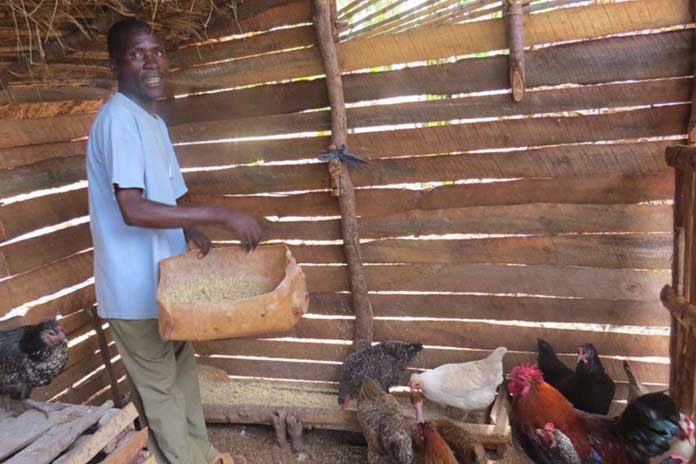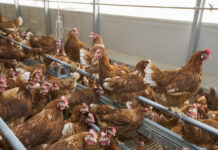
A study on how poultry vaccination interventions can change smallholder farmer knowledge, attitudes, and practice in villages in Kenya and Tanzania has been completed in the last months.
Poultry are important for many poor households in developing countries, but there are many constraints to poultry production, including disease. One of the most important diseases of chickens is Newcastle disease (ND). Even though there are effective vaccines against this disease available in most countries, uptake by small-scale poultry keepers is often low.
In this study, two areas in Kenya and Tanzania were studied, where some villages had received additional support to get vaccination and other villages had not. In Kenya, 320 households from 10 villages were interviewed, of which half of the villages had active promotion of vaccination through village-based advisors. In Tanzania, 457 households were interviewed, of which 241 came from villages that have had active support through either a project or government extension services.
Knowledge about vaccines and the attitudes towards vaccinating against ND was evaluated using mixed multivariable logistic models. Results indicate that in Kenya, the most important determinants for understanding the function of a vaccine were having had support in the village and to have knowledge about ND signs, while in Tanzania gender and previous vaccine use were important in addition to having had support.
Attitudes towards vaccination were mainly determined by knowledge, where more knowledge about how vaccines work in general or about ND contributed to more positive attitudes. Among Kenyan farmers that had never used the vaccine before, the amount of birds they lost to disease and predators also influenced attitudes.
In conclusion, this study supports the notion that knowledge is a very important component of extension support and that simply making vaccines available may not be sufficient for high levels of uptake.

















